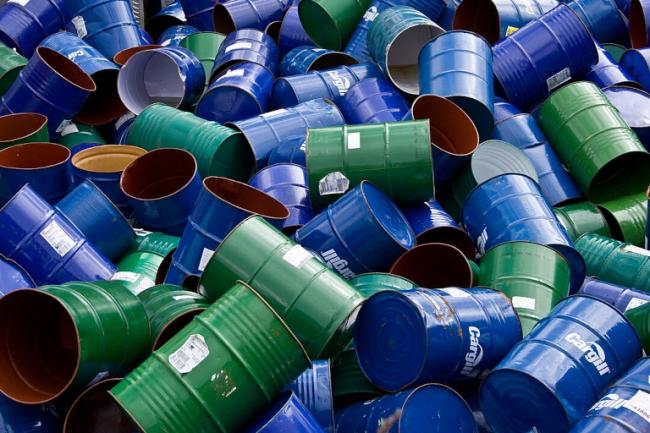Articles Menu

Apr. 15, 2024
Oil in the North Sea is expected to be net-energy negative by 2031. This means that in 2031, it’ll cost more energy to extract the fossil fuels than we would gain by using them, rendering extraction unfeasibly expensive. Yet, rather than use our remaining years of access to these fuels to turbo-charge new energy infrastructure, fossil fuels are being extracted and burned for business as usual: quick cash. Around the world, the lights will go off in nations that don’t have back-up renewables. That’s most of them.
I interviewed Alister Hamilton, Director of Zero Emissions Scotland who produced this report, last week on the show. Normally, when considering how much oil is available in a reserve, geologists think in barrels of oil. Yet, Alister and his collaborators considered this to be an inaccurate understanding of energy availability given we expend energy to access, extract and refine fuels, and that fossil fuels are a terribly inefficient source of energy, with 35-40% of energy lost as heat. That energy efficiency alone should dramatically reduce the energy we consider available in a barrel, let alone the incredibly energy-intensive machinery used to extract these fuels. During the interview, Alister mentions floating wind turbines are now being built in the North Sea to power oil rigs in a bid to decarbonise them. Talk about treating the symptom, not the cause.
The team created a thermodynamic model of oil production to accommodate the inefficiencies and factor in energy cost. They found that, globally, it will cost more energy to extract oil than we would gain from using it before the end of the 2030s. In some local areas, we’ve passed that threshold: Alaska’s oil production became net-energy negative in 2021. The North Sea’s oil is technically already net-energy negative but is artificially propped up with energy subsidies from fossil fuels and renewables (like those wind turbines). But those subsidies can’t stop the exponential curve and extraction in the North Sea will be net-energy negative in 2031. Norway follows not long behind in 2032.
This model adds to the EROI conversation: Energy Return On Investment. People like Nate Hagens have talked extensively about how it will simply be too expensive to continue extracting oil thanks to energy costs. Alister’s thermodynamic model adds necessary fuel to that fire. The times are urgent and we are literally wasting our energy. Without a back-up or new energy infrastructure to kick-in before the crash, some of the richest nations in the world could see themselves plunged into darkness.
Now, obviously when we factor in oil trading, the picture gets more complicated, and certainly most nations are still betting big on fossil fuels as all petrostates and oil companies seek to increase production. But the resource wars violently playing out warn us that even these nations are running low on their own reserves. In fact, the USA hit peak conventional oil in the 70s, with production declining through the 80s and 90s before they figured out how to maximise returns from fracking to produce shale oil. Biden bet big on the continuation of fracking, but now Qatar is muscling to take the world’s number one spot. It’s doing so by funding a genocide in Darfur to gain access to resource-rich Sudan. As for Palestine? There’s $500 billion worth of gas off their coast. The Middle East has yet again become a target for multiple imperialist projects, targeting vulnerable, resource-rich nations. Betting big on old allies to fill up our tanks when our supplies run dry is too foolish to be called a strategy given Saudi Arabia’s recent alignment with China by joining BRICS. A new world order is on the horizon. The only way to survive it is decentralisation.
That’s the solution Alister gives in our conversation: decentralise energy systems. Produce smaller, less energy-intensive machines and give people control over the means of their energy production. Again, we must think about the time we have left to act—fast—and the energy we have at hand to act. Fossil fuels are devastating the earth’s climate and their extraction has devastated democracy, culture, people, wildlife, just about everything we could hold dear. Activists rightly call for us to stop oil immediately. I support their message. Yet, we need an energy revolution and building the kind of infrastructure we need for a cohesive society will take fuel. Rather than just stopping oil, we should redirect the unfathomably immense quantities of wasted energy that supports the lifestyles of the world’s 1%, who emit as much as the bottom 66% and use our last remaining years of access to build better stuff. Redistributing, as degrowth calls for, would make so much energy available whilst still reducing overall emissions. Then, with it built, we could reduce even more.
And we will need to. We cannot have a functioning biome whilst gouging out the earth’s insides for precious metals for machines we replace every year. We cannot—and should not—provide everyone with an electric vehicle when we could instead spend less energy in much more interesting ways creating public transport systems that are a joy to use. I interviewed Susan Krumdieck a few years ago about transition engineering and, like Alister, she stated very clearly that we have the technological solutions to create a sustainable human society on a thriving planet. We just need to re-engineer what we have so that it lasts longer and uses less energy. We’ll need to do that because we won’t have access to as much energy.
Low-energy is the future, either through choice or physics. We are running out of time to have a say.